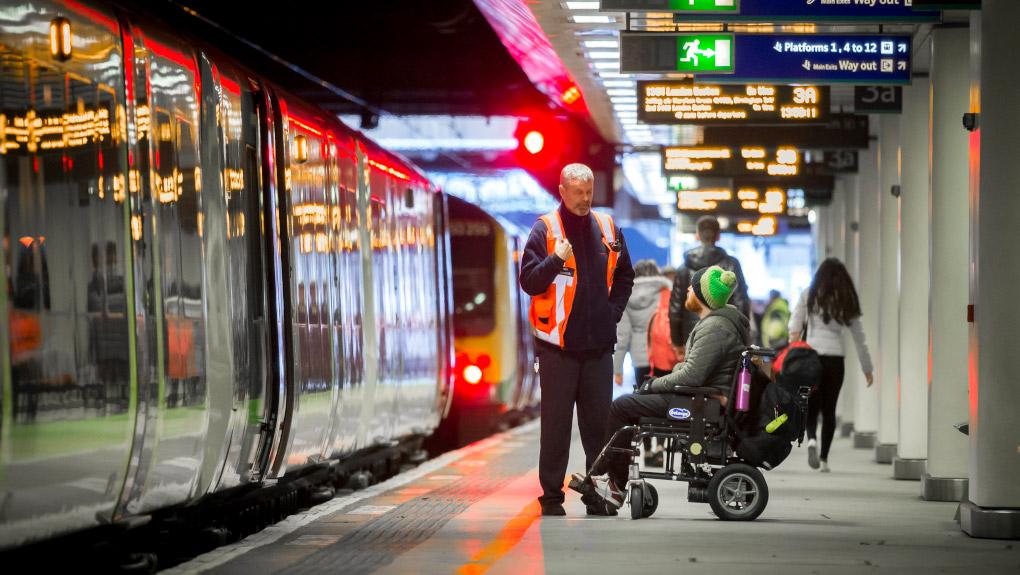
The regulator’s study is part of wider accessibility work aimed at improving the reliability of assistance for those passengers who need it. Staff communicating the assistance needs between stations is a key factor in successful delivery.
When assistance fails it can be distressing for the passengers impacted. This latest report from ORR shines more light on the areas for improvement and follows the regulator’s 2024 work which assessed the delivery of assistance by operators.
ORR’s consumer team went to examine first hand how the handover procedures worked in reality at five busy stations: Birmingham New Street, Bristol Temple Meads, Crewe, London Kings Cross and Manchester Piccadilly.
ORR found that technologies like the Passenger Assist staff app and dashboard mean staff providing assistance can better manage and respond to both booked and turn-up-and-go assistance requests, significantly reducing the risk of information being lost or miscommunicated between stations.
Stations with structured approaches to risk management and regular staff engagement demonstrate stronger continuous improvement and accountability.
However, ORR has found that while the Passenger Assist system records the outcome of assistance requests, this data is not routinely reviewed to identify trends or help make improvements to the service. The regulator also noted that there was an increased risk of missed or misunderstood information, where some stations are moving away from telephone handovers without clearly communicating this with other operators or stations.
ORR had made a number of recommendations for operators and Network Rail at stations that deliver high volumes of passenger assistance.
These include:
- train operators should hold regular staff meetings at station-level to go through assistance data, to help identify and address the causes of assistance failings
- train operators should review how they can make best use of the Passenger Assist staff app and dashboard to improve communications between stations, and to inform ORR if they believe they can deliver equivalent or better outcomes for passengers without routinely making phone calls. ORR would assess the risks to passengers from the proposed updates to the communications processes.
ORR will bring together operators before the summer to discuss the findings and recommendations from the report.
Stephanie Tobyn, director of strategy, policy and reform, said:
Notes to Editors
- Communications between stations when assisting passengers – report
- Passenger Assist is the shared industry software system for logging and managing assistance requests, which all operators are required to use when passengers book assistance. The Rail Delivery Group (RDG) manages Passenger Assist on behalf of operators.
- All train and station operators must establish and comply with an Accessible Travel Policy (ATP) as a condition of their licence, setting out their provision for disabled people. Operators must secure ORR approval for their ATP, and ORR has issued guidance that defines minimum requirements, covering areas such as provision of assistance, staff training and passenger information. Passengers may either book assistance in advance (up to two hours ahead of the journey) or ‘turn-up-and-go’ (TUAG).
- The ‘handover protocol’ sets out what operators must do when assistance at the destination station will be provided by staff who are not on board the train itself. The key requirements are for each station to have a dedicated phone number for assistance communications, and for staff at the departure station to call the destination station to communicate the information necessary to ensure that the passenger receives the assistance when they arrive. The handover protocol was developed with input from operators and disabled passengers, and is set out fully in ORR’s ATP Guidance.

